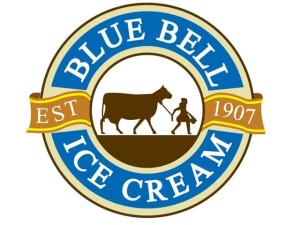There are three important things in my life: my family and friends, hockey, and food safety.
In that order.
A few weeks ago Doug and I had a conversation about the hockey rink being our church; we share fellowship, care about our community and want to share our joy with others; the hours we spend on the ice playing, coaching and skating are unlike anything else we do.
Or as one of my friends put it, ‘The nice thing about hockey is for an hour I tend to forget about all the other crap that’s going on and hang out with folks that share my passion for the game.’
And enjoy the company of people we care about.
A teammate had a shocking tragedy in his family this week and while our team debated cancelling our game, we decided to play tonight. It gives us a place to go to talk about how our community can support our close friend.
I guess that’s what church is all about, too.
Some people have that same feeling about food brands, I guess.
Jack Stalling of the Longview News-Journal writes, Blue Bell Ice Cream is sort of a church and he’s rejoicing that it is back on the market.
Shortly after I married my lovely wife back in February of 1998, Rachel and I treated ourselves to a night out that included dinner and a movie.
Dinner was outstanding, and both of us claimed to be way too stuffed to even consider having dessert.
When I noticed that the restaurant offered Blue Bell homemade vanilla ice cream on apple pie as one of its dessert choices, I undid another notch on my belt and asked the nice waitress to bring it as fast as her tired legs would carry her.
I could tell Rachel was confused, so I explained one of my fundamental beliefs to my new bride.
“Never pass up the opportunity to eat Blue Bell,” I told her. “Even if you don’t want it right then, some day you might really want some Blue Bell, and if it’s not available, you will remember the time you passed up the opportunity to eat Blue Bell. Do you want that sort of thing creeping into your dreams at night and haunting you?”
And Chipotle has created a similar passion within its fans, writes Dave Bry in the Guardian,
As I was deciding what to order, Depeche Mode’s cover of Route 66 came on the radio. This turned out to the absolute perfect soundtrack for my experience. Its cold, clean synth beat was a perfect match for the sterile and antiseptic decor, while David Gahan’s slightly evil baritone voice spoke of infection and the dangers of travel in our modern age – of the danger of seeking “kicks”, and a deal with the devil. Was I gambling with my life, with my eternal soul, by eating Chipotle?
I went ahead anyway, and ordered a barbacoa steak bowl, with white cilantro/lime rice, black beans, sour cream and lettuce. (Guacamole was extra, and I don’t appreciate when restaurants charge extra for things that other restaurants provide gratis, so I skipped it.) I asked for the hottest salsa available, imagining the acid in the habanero peppers might kill any virus or bacteria hiding in my food. Also, I like spicy food.
At the cash register, I found an even better safety precaution. Chipotle serves margaritas! This was a surprise. It felt like going to a McDonald’s and getting to order a martini with your Happy Meal. Whatever E coli or salmonella or norovirus the salsa didn’t burn into oblivion, I figured, would be pickled to anodyne by tequila.
The lady at the cash register was friendly. I asked her if she’d noticed a drop-off in business in the wake of the outbreaks.
“Oh, yeah,” she said. “There are way less people coming in lately.”
“But then we’ve got our regulars,” she added, nodding to the people at the tables. “We got people that come every day. They say, ‘I don’t care!’”
I prefer the hockey rink.











